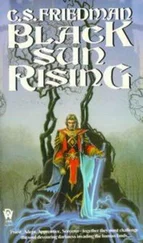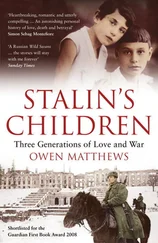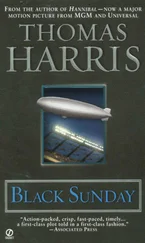“And Petrov’s apartment?”
“Same story. Sealed.”
Vasin frowned and looked at the floor.
“So, General, if I have understood correctly, I may not in fact do anything? Except compose a telegram to Moscow informing them that I have been prevented from carrying out the Politburo’s orders. Good day, Comrades. I imagine Moscow will be in touch.”
Vasin placed his sheaf of credentials on Zaitsev’s desk, saluted smartly, and turned on his heel without waiting to be dismissed.
“Wait!”
The boss’s voice had sunk to a low growl.
“Major. Just do your job and get out of here. Efremov, you can take our guest to the morgue. He wants a sniff of our Arzamas radiation. Take him now.”
Efremov saluted in turn and stalked out of the room, throwing a glance of contempt at Vasin as he passed. Vasin and Zaitsev remained alone.
“My thanks, Comrade General. I will do my job.”
“You have two days, Vasin. Two .”
Or what?
Vasin knew better than to ask.
II
Vasin and Efremov walked down Engels Boulevard without speaking. A fine drizzle shrouded the town in a pall of drifting gray. They emerged into the main square, named for Lenin. One side of the square opened onto a high riverbank. Beyond stood a wooded island topped by the tall belfry and onion domes of a former monastery that no one had got round to demolishing. To their left rose the arrogant modern bulk of the Kino-Teatr Moskva, the facade a sloping expanse of plate glass. Inside the cinema’s atrium the chandeliers glowed with dingy light against the morning gloom. The only color in the square came from the windows of the Univermag department store. As they passed Vasin dawdled to examine the goods on display. Czech shoes and German overcoats. A large stack of canned Kamchatka crab. In Moscow, such a cornucopia would draw a crowd. But here, citizens were apparently indifferent to the fantastic luxuries piled high in the shopwindow.
And the people. The way they moved was disconcerting. On this singular planet there were no scrums of grunting housewives, shoving forward toward their objects of desire, a departing tram, a fresh chicken. The people of Arzamas strolled about like extras in a film. They were as well dressed as actors, too, even the manual workers in their striped sailors’ undershirts and boiler suits. A model town, full of model citizens.
On a street corner a traffic policeman stood hopefully, waiting for some traffic to direct. None came. Efremov turned in to Kurchatov Street. They passed a restaurant with red velour curtains, a hairdresser’s shop with its miasma of violet-scented hair spray, food shops with their standard-issue Soviet signs: MEAT. FISH. An electric tram, the new Polish kind that had only just arrived in Moscow, rumbled past on fresh-laid rails. Arzamas’s Central Clinical Hospital stood back from the road, a long gray cube.
At the entrance to the hospital Vasin paused to light an Orbita. Efremov waited, but did not light one of his own. Vasin knew the wisdom of numbing the nostrils, recalling the foul mortuaries that marked the beginnings of most of his cases. A stinking cellar in Tashkent from which some Party bigwig had commandeered the refrigeration unit for his dacha. A charnel house in Rostov on Don where bodies were stacked in promiscuous piles in a grotesque parody of an orgy. But as he and Efremov strode down the stairs to the hospital’s basement, Vasin’s nostrils were filled only with the clean sting of formaldehyde and disinfectant. A doctor in a crisp laboratory coat stepped backward into the corridor. Catching sight of the two officers, he stopped short.
“Good morning… Comrades.”
Their uniforms. Black officer’s boots, blue breeches, belt and shoulder straps, the telltale KGB green piping on their caps and epaulets. Back in the days when Vasin used to work in his old dark blue police uniform, crumpled and scruffy, people would roll their eyes. Most Soviet citizens viewed ordinary cops as bunglers, sacks of shit tied with belts. The most common nickname for the police was musor, “garbage.” Ever since his move to the KGB, people shrank at the sight of him. Did he enjoy it? Vasin looked the doctor up and down. A part of him did. The world bends around an officer of State Security. It was like a law of physics, radio waves curving in a magnetic field. It bends—though not usually in the direction of truth.
“Comrade Doctor Andreyev.”
“Major…?”
“Efremov. I have brought one Major Vasin of State Security, from Special Cases in Moscow. He has come to discuss the tragic accident of Fyodor Petrov.”
“Ah.” Dr. Andreyev’s face eased a little. “Of course.”
Men still feared the uniform. Show me the man and I’ll show you the crime, old KGB bruisers of the Stalin generation used to say. Sure, the country had a different leader now and was heading into a different future. Officially the old days of State terror, of indiscriminate arrest lists and regional quotas for executions, had been jettisoned. Or so Vasin chose to believe. Nonetheless the reflex of fear lingered like the ache of an old scar.
“Would you like your visitor to see the pathology report, Major?”
Vasin spoke up.
“And the body.”
Andreyev hesitated.
“Are you aware of the necessary precautions… and the risk?”
Vasin nodded grimly. Never admit to ignorance. Andreyev glanced nervously at Efremov, who grimaced his assent.
“Please, go ahead. Our Moscow visitor seems very eager. But if you don’t mind I will wait outside.”
“Very well. I will summon my personnel.”
“Is the risk… unusually high?”
“Yes, Comrade Major. You will see it in the pathology report. Tests show that young Petrov has enough thallium inside him to poison a city.”
—
The rough cotton of the oversize overalls chafed Vasin’s crotch and made him walk bowlegged. The curved plastic of his face mask was misted with condensation. Andreyev, leading, walked stiffly into a room covered in shining white tiles and illuminated by a powerful surgical lamp. A pair of orderlies, also dressed as spacemen, rolled a dull metal coffin in on a gurney. They struggled to lift off the lid, which came off in weighty sections.
“Lead,” Andreyev called through the rubberized canvas of his mask. “Lead! Absorbs radiation.”
In the coffin lay a drowned man. Or at least that was Vasin’s first impression. The face was bloated, the skin pale and blotched, the eyes and mouth wide open. Petrov’s hair had fallen out in clumps and had continued to shed into his coffin. The young man’s teeth, too, were loose and covered in clotted blood. Around Petrov’s shoulders and chest were scratch marks, as though made by fingernails. Vasin gestured a question with a gloved hand. The doctor mimed tearing off his overalls.
“Self-inflicted. He shredded his clothes.”
The handsome young man in Petrov’s file photograph was unrecognizable. In death the victim looked… Vasin searched for the word to describe it. Exploded. Petrov’s body seemed to have burst like an overboiled sausage.
Unusually, the torso was untouched. Vasin mimed cutting up and sewing together above the stomach. Andreyev wagged a finger.
“No autopsy, Major. Too dangerous” came his muffled words.
The dead were often Vasin’s best informants. Most of his fellow detectives preferred living witnesses that they could browbeat and terrorize. But Vasin knew that dead men most certainly could tell tales. And unlike the living, they rarely lied. Petrov’s corpse, however, would keep its secrets locked inside.
“Close it.” Vasin flapped his hands. “Close it.”
The pathologist eased a black Bakelite device into the space beside the corpse’s head—evidently a Geiger counter for measuring radiation. The needles on the dials leapt to maximum and stayed there. Andreyev turned some buttons, coaxing the needles downward, and took a final reading. Orderlies reappeared, moving quickly, sealing off Petrov’s pale blue eyes from the light for the last time.
Читать дальше












